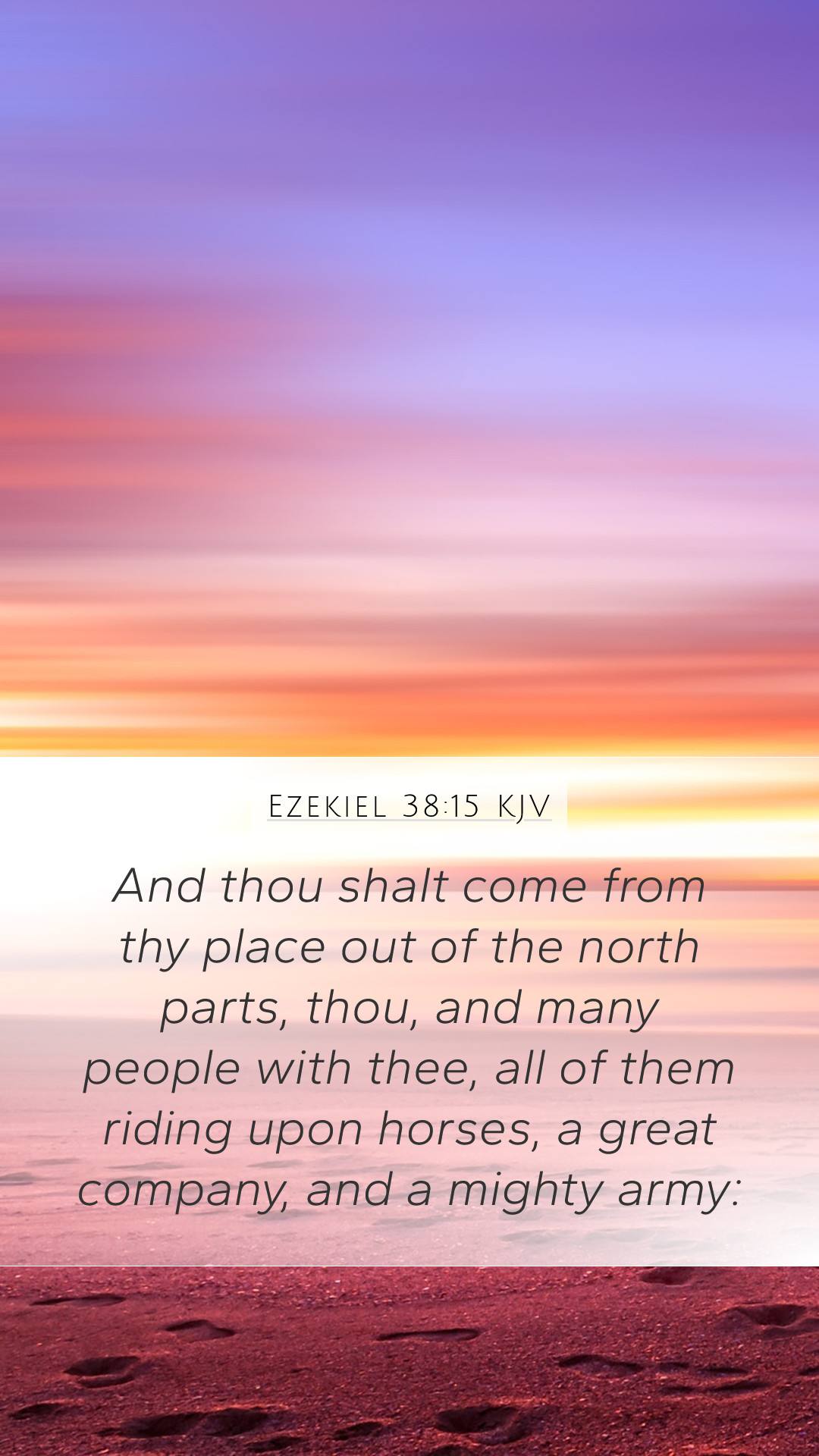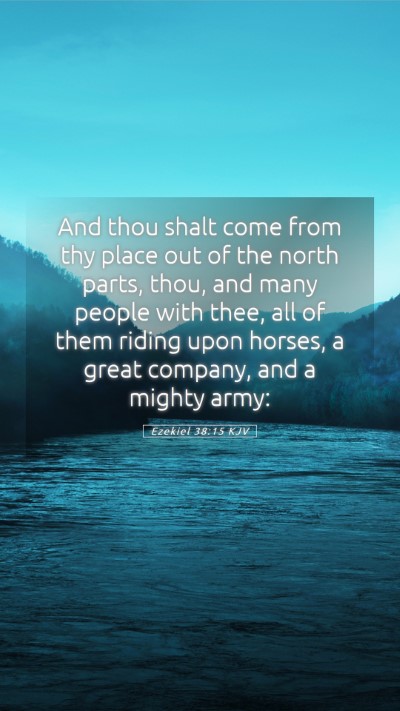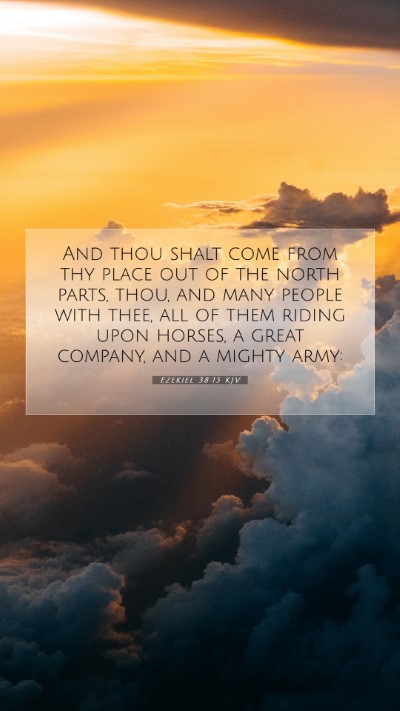Ezekiel 38:15 - Bible Verse Meaning and Interpretation
Ezekiel 38:15 states, "And you shall come from your place out of the north parts, you, and many people with you, all of them riding upon horses; a great company, and a mighty army." This verse marks a pivotal point in Ezekiel's prophecy concerning the future invasion of Israel by a coalition of nations led by Gog from the land of Magog. In this summary, we will provide insights from prominent public domain commentaries to enhance your understanding of this verse.
Overview of the Context
Ezekiel prophecies during a time of impending disaster for Israel, particularly emphasizing the eventual restoration of God's people. The chapter preceding this verse describes a looming conflict, where God highlights the coming judgment upon hostile nations. The mention of "north parts" signifies an attack from a formidable enemy, often interpreted as hostile forces arising from the regions farthest from Israel.
Key Themes and Concepts
- Symbolism of the North: The north is symbolically represented as a source of disturbance and calamity. Commentators like Matthew Henry emphasize that this denotes not just a geographical location but embodies spiritual antagonism against the chosen people of God.
- Horses and Mighty Army: The imagery of "horses" and "mighty army" suggests an organized, overwhelming force. Albert Barnes notes this conveys the strength and determination of the impending invaders, reflecting historical patterns of army mobilization in ancient Near Eastern warfare.
- Divine Sovereignty: Despite depicting impending doom, the verse implicitly acknowledges God's authority over the nations. Adam Clarke highlights that God ultimately allows this invasion for the purpose of demonstrating His power and the eventual downfall of even the mightiest foes.
Interpretative Insights
The interpretation of Ezekiel 38:15 revolves around several layers of understanding:
- Historical Context: Understanding the geopolitical realities of Ezekiel's time, notably the threats posed by kingdoms like Babylon and Assyria, enriches the reader's perspective. The north has often been correlated with historical aggressors against Israel.
- Prophetic Significance: Scholars argue this passage foreshadows eschatological events and serves as an admonishment for Israel regarding future spiritual complacency—a theme emphasized in both prophetic literature and contemporary application.
- Spiritual Warfare: Beyond the literal interpretation, modern readers consider the spiritual battle represented in this prophecy, echoing Paul’s teachings in Ephesians 6 about the armor of God and the need to be vigilant against spiritual forces.
Bible Verse Commentaries
Matthew Henry’s commentary elucidates the broader implications of this prophecy, framing it within the context of God’s ultimate plan for redemptive history. He emphasizes the transformative power of God's interventions amid chaos. Albert Barnes offers insights on the military imagery, pointing out its role in foreshadowing both physical and spiritual conflict. Adam Clarke elaborates on the forces and leadership, suggesting the concept of Gog and Magog as archetypes of rebellion against God.
Cross References
- Ezekiel 39:1-3: This passage continues the prophecy regarding Gog’s downfall, providing closure to the conflict anticipated in 38:15.
- Revelation 20:8: The mention of Gog and Magog resounds in eschatological contexts, indicating a future rebellion against God’s final kingdom.
- Jeremiah 1:14: Discusses the concept of nations rising from the north against Israel, reinforcing the geographic significance in prophecy.
Application and Reflection
For modern believers, Ezekiel 38:15 becomes a call to recognize the reality of spiritual warfare, reminding us to prepare ourselves with faith and prayer. In the context of Bible study, understanding such passages encourages reflection on God’s sovereignty and assurance of His ultimate victory over evil. Organizing Bible study groups around texts like this fosters discussion about God's promises amidst trial, enriching communal faith.
Conclusion
By exploring Ezekiel 38:15 through various commentaries, readers can grasp a multi-faceted understanding of this profound biblical prophecy. Engaging with Scripture analysis, community discussions, and prayerful reflection helps deepen one’s Bible verse understanding and appreciation for God's narrative in human history.


